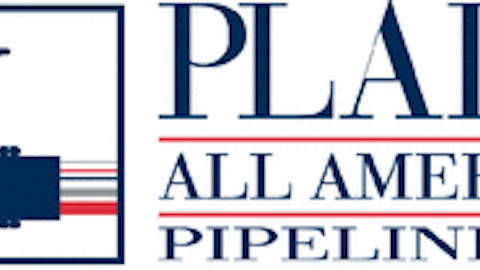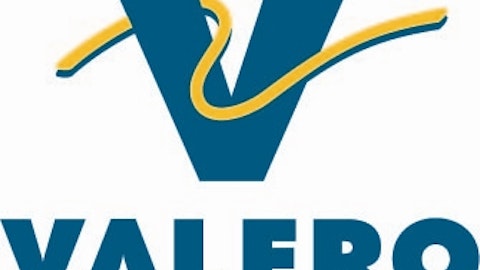North Dakota’s oil production recently reached 730,000 barrels per day. That represents a more than sevenfold increase since 2006, when production was around 100,000 barrels per day. Energy companies with major operations in the prolific shale formation are seeing similarly extraordinary improvements in production volumes.
For instance, Kodiak Oil & Gas Corp (USA) (NYSE:KOG), which has its operations focused almost exclusively in the Williston Basin, roughly tripled its average production from 2011 to 2012. And the company is hoping for similar gains this year, projecting a twofold increase in average production from last year.

In the meantime, companies have increasingly resorted to other means, including rail, barge, and even trucks. Over the past year or so, the demand for these alternative transport services has ballooned.
Growing demand for rail transport
Rail transport is allowing Bakken crude to be shipped to major terminals on the East and West coasts of the country, as well as to St. James, La. – a major hub that delivers crude to refineries in Louisiana, Mississippi, and the Midwest.
For instance, Tesoro Corporation (NYSE:TSO) finished up an offloading terminal at its Anacortes, Wash., refinery last year that will be able to ship as much as 50,000 barrels per day of Bakken crude via rail.
Many more such ventures are expected to come on line this year. According to Eric Lee, an oil analyst at Citigroup, projects going into service this year should more than double the quantity of Bakken crude delivered to the East Coast, from around 300,000 barrels per day to over 800,000 barrels per day. Let’s take a look at some major ones.
Rail projects for 2013
Most recently, PBF Energy Inc (NYSE:PBF) announced the completion of a rail unloading facility with a capacity of roughly 110,000 barrels per day flowing from the Bakken. After the oil is unloaded, it will make its way to a refinery in Delaware City, Del.
A south Philadelphia refinery, previously owned by Sunoco and almost shut down last year, is now constructing a high-speed rail unloading facility that will move rail-delivered oil straight to the refinery. By the end of the year, the refinery – which has a capacity of 330,000 barrels per day, or roughly a quarter of total East Coast refining capacity – is expected to drastically increase the quantity of Bakken oil it takes in.
Last month, Phillips 66 (NYSE:PSX) inked a five-year contract with Global Partners, a petroleum products company, which will allow for the delivery of Bakken crude to Phillips’ Bayway refinery in New Jersey via Global Partners’ rail network.
And Plains All American Pipeline, L.P. (NYSE:PAA) is in the process of completing a rail terminal in Virginia that is expected to take delivery of some 160,000 barrels per day of Bakken crude by the third quarter.
Winners from rising Bakken crude shipments
While Bakken crude traded at a substantial discount to WTI over much of the past year – reaching a high of $28 per barrel in February – its price has risen substantially as it finds more outlets throughout the country. It currently trades just about $3 under WTI.
These are promising developments both for East Coast refiners and for rail companies.
Many refineries along the East Coast have been forced to rely on more expensive foreign oil from the North Sea and Africa, which has taken a toll on their profit margins. The new influx of Bakken crude is providing them with a cheaper alternative, even after factoring in transport costs.
The transport costs associated with moving Bakken crude to the East Coast, via rail networks and barges, are between $14 and $16 a barrel. Even after accounting for these costs, Bakken crude is still more than $5 a barrel cheaper than the Brent-linked crude East Coast refiners have been depending on.



